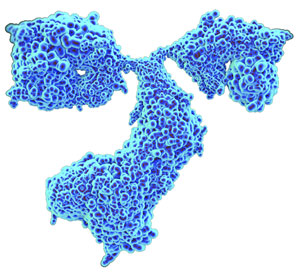
The detection of these proteins employs a range of differing techniques from electrophoresis and immunofixation to nephelometry/turbidimetry.
The assays available within the Clinical Immunology Laboratory include:
- Acute Phase Proteins (Alpha-1-antitrypsin, Caerulolasmin and Complement)
- Alpha-1-antitrypsin phenotypes
- Beta-2 Microglobulin
- Complement Function assays
- C1 Esterase Inhibitor - Quantitative and Functional
- Cryoglobulin detection and quantification
- Functional antibodies to: Haemophilus influenzae type B, Tetanus Toxoid
- Pneumococcal polysaccharide - total levels and serotype specific levels
- Immunglobulins (IgG, IgA and IgM) and serum electrophoresis
- IgG Subclasses (IgG1, IgG2, IgG3 and IgG4)
- Oligoclonal Band detection in paired CSF and Serum samples
- Rheumatoid Factor
- Serum free light chains
- Urine Electrophoresis

